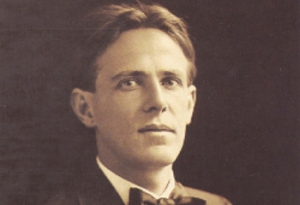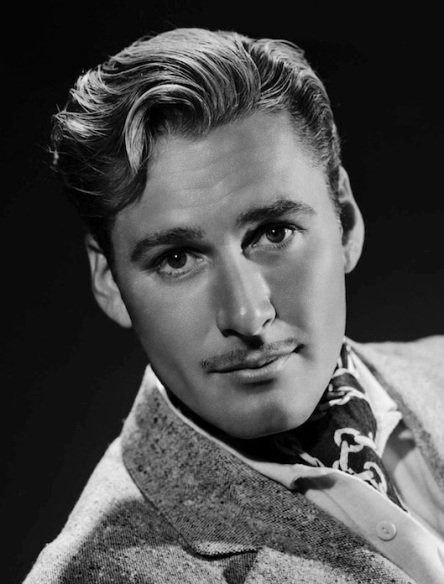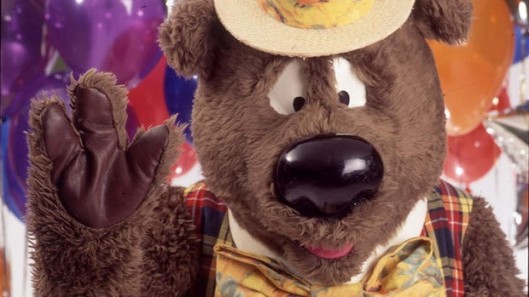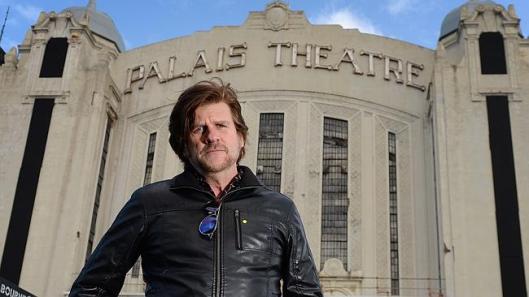Tags
Anglo-Saxon names, Arabic names, Biblical names, classic names, cyclone names, Egyptian names, english names, famous namesakes, fictional namesakes, germanic names, hebrew names, Irish names, Latin names, locational names, modern classics, mythological names, name history, name meaning, name popularity, name trends, nicknames, Old English names, pen names, popular names, rare names, Roman names, royal names, saints names, Slavic names, stage names, surname names, underused modern classics, unisex names, vintage names
Dominic
There was a Cyclone Dominic in 1982 and another in 2009; both were quite severe and did significant damage. Dominic is from the Latin name Dominicus, meaning “of the Lord”, and often translated as “belonging to God”. It began as a specifically Christian name, and there are several saints named Dominic. The most famous is the medieval Spanish priest who founded the Dominican Order; he was named after St Dominic of Silos, who answered the prayer of the second St Dominic’s mother that she might become pregnant. As part of that joking folk etymology that religion is so fond of, the Dominicans are said to be named from the Latin for “dog of God” (Domini canis), as a sign of St Dominic’s dogged faithfulness. Dominic has charted since the 1950s, when it debuted at #236. It reached the Top 100 in the 1990s, and has mostly stayed around the bottom quarter of the Top 100, or fallen just below it. Currently it is #88. This is a sleekly handsome modern classic that’s never been highly popular, and comes with the nicknames Dom, Nic, or Nico.
Iggy
Cyclone Iggy was off the coast of Western Australia in 2012: grave fears were held as its power intensified, but by the time it made landfall it had waned considerably. Iggy is traditionally used as a short form of Ignatius, but rocker Iggy Pop (born James Osterberg) took his stage name from his high school band, The Iguanas. Another musical Iggy is Australian rapper Iggy Azalea (born Amethyst Kelly): her stage name Iggy is from her childhood dog, possibly named after Mr Pop. In the Maximum Ride YA series by James Patterson, Iggy is an extremely handsome blind boy whose real name is James Griffiths. This name might feel like “nickname only” territory, but a few people have Iggy as their full legal name. While Ignatius is elegant, Iggy is in-your-face cyberpunk nuttiness, and will appeal to parents wanting something fun and different.
Marcus
Marcus is on the current list of cyclone names. Marcus is a Roman name believed to be derived from Mars, the Roman god of war, and was one of the most popular names in ancient Rome. Famous Romans with the name include the general Marcus Antonius, otherwise known as Mark Antony; the emperor Marcus Aurelius; Marcus Junius Brutus, usually known to us as Brutus, the assassin of Julius Caesar; and the philosopher Marcus Tullius Cicero. Marcus has been used as an English name since the Middle Ages, but widely used on the Continent and in Latin America as well. It’s currently popular in Scandinavia, as well as Australia and New Zealand. Marcus is a classic name which has been almost continuously on the charts. It was #190 in the 1900s, and fell to nothing during the 1930s. After that it continued growing and made the Top 100 by the 1970s. Popularity dipped, but it was back again in the 1990s, and peaked at #51 in 2003. It is currently #82. A popular classic never higher than the bottom half of the Top 100, Marcus combines historical gravitas with European style.
Miles
Cyclone Miles was off the coast of Queensland in 1977. Miles is the English form of the Germanic name Milo, whose meaning is unclear. It may be from an ancient Germanic word meaning “mild”, but it has been argued that it is related to those Slavic names meaning “dear, gracious”, such as Mila and Milan. From early on, folk etymology connected it to the Latin word miles, meaning soldier – in Roman comedies, a foolish stock character was Miles Gloriosus, meaning “bragging soldier”. The name has been in use since the Middle Ages, introduced by the Normans, and is often thought of as rather aristocratic. A famous namesake is Miles Coverdale, who was the first person to translate the Bible into English in 1535. Miles has charted since the 1950s, when jazz legend Miles Davis gave the name an injection of cool; it debuted at #323. Since then, the name has increased in popularity, but never become popular, so this is an underused modern classic. It’s around the 100s currently. Rising in both the US and UK, this is a hip choice with a smooth sound.
Oswald
Cyclone Oswald hit Queensland and New South Wales in 2013, causing widespread storms and floods. A natural disaster was declared, and due to the severity of the cyclone, the name Oswald has now been retired. Oswald is an Old English name meaning “godly ruler, divine ruler”. There are two English saints named Oswald; Oswald of Northumbria was an Anglo-Saxon king, and the most powerful ruler in Britain during his time. The name Oswald became less common after the Middle Ages, but was revived in the 19th century as part of the Victorian fascination with ancient British names. Oswald was #75 in the 1900s and left the Top 100 in the 1920s. It left the charts in the 1940s and had unfortunate wartime namesakes – Nazi officer Oswald Pohl, who oversaw the concentration camps, and British Fascist, Sir Oswald Moseley, a friend of Adolf Hitler. In fiction, Oswalds are usually villains or comic characters, but Oswald Bastable from the Treasure Seeker series by E. Nesbit has been claimed as a revolutionary hero name in the Nomad of Time Streams works of Michael Moorcock, and the name is sometimes used in sci fi. A bold vintage choice with a steam punk vibe.
Paddy
Cyclone Paddy was near Cocos Island in May 1981, extremely late in the season. Paddy is an Irish nickname for the name Patrick, or its Irish forms Padraig and Padraic. It was once so commonly used that Paddy became a derogatory term for any Irishman. With such strong immigration from Ireland, the name has a long history in Australia with several famous namesakes, with Paddy either short for Patrick, their full name, or a nickname unrelated to their name. Some examples are: Paddy Hannan, the gold prospector who set off the gold rush in Kalgoorlie; Indigenous artist Paddy Bedford; colourful politician Paddy Crick; Aboriginal elder Paddy Roe; and pioneering bushwalker Paddy Pallin, who founded the chain of outdoor equipment stores. Paddy is also occasionally used as a girl’s name, a variant of Patty; an example is Australian author Paddy O’Reilly. Paddy is around the 500s in Australia, and fits in with the trend for nicknames as full name. Great Irish heritage choice with an Australian flavour.
Rusty
Cyclone Rusty hit the coast of northern Western Australia in 2013. Hurricane-force winds and heavy rain caused flooding and significant damage. Due to the severity of the cyclone, the name Rusty has now been retired. Rusty can be a nickname for either the first name or surname Russell, or a nickname given to someone with red or reddish-brown hair. It is not commonly given as a full name, but after Cyclone Rusty there was a reported increase in the number of baby boys named Rusty, so this is one cyclone at least which influenced local name trends. A rough-and-tumble boyish name in the style of Buster and Sunny: not recommended if your surname is Naylor, Bucket or Lidd.
Seth
Seth is on the current list of cyclone names. In the Old Testament, Seth was the third son of Adam and Eve, born after Abel was murdered by Cain. According to the Bible, Seth was the progenitor of the human race as it exists today, as only his descendants survived the Great Flood. The Bible is coy as to how Seth had children for us to be descended from, but the Apocrypha provides the obvious solution by having him marry his sister. Although the Bible tells us nothing more about Seth, according to tradition he was virtuous and wise; he is regarded as a saint in Christianity, and revered as a prophet in Islam. The name doesn’t seem to have been common for Jews, although in the New Testament the High Priest is said to be the son of a Seth. According to the Bible, the name Seth means “appointed”, to suggest that God appointed Seth as a replacement for Abel. Seth is also the Greek form of the Egyptian god Set, deity of storms and chaos, and murderer of his brother Osiris. The name has a strong New Age resonance due to the supposed chanelled messages of a being named Seth, highly influential to later writers. Seth has been used as an English name at least since the 16th century, and became more common during the 18th. Seth has charted since the 1970s, debuting at #539, and joined the Top 100 in the 2000s. It left the Top 100 in 2014, but cannot be far below it. An Old Testament name that women in particular seem to love as both soft and gentle, and dangerously sexy.
Vance
Cyclone Vance hit Western Australia in 1999, bringing gale-force winds and severe storms, and causing significant damage, particularly in Exmouth. Vance is an English surname that comes from the Old English for “fen”, describing someone who lived near a flat wetlands area or marsh. The surname has a particular association with Scotland, and the Scottish Vances believe their name is Norman, from Vaux in France, meaning “valley”. Vance has been used as a personal name since the 18th century, and was strongly connected with Scotland and Ireland. Vance Drummond was a New Zealand-born officer in the RAAF, much decorated for his gallantry in the Vietnam War. The famous writer Vance Palmer was born Edward, with Vance short for his middle name, Vivian. Not only a great contributor to Australian literature, he and his wife Nettie were part of the social movement that promoted Australian egalitarianism. The indie pop singer Vance Joy’s real name is James Keogh – he took his stage name from a minor character in Peter Carey’s novel Bliss. A vintage name ripe for revival with a strong connection to Australian culture.
Zane
Cyclone Zane was off the coast of Queensland in 2013, but by the time it made landfall it had dissipated to almost nothing. The name Zane was popularised by the American western novelist Zane Grey: he was born Pearl Grey (apparently in tribute to Queen Victoria’s mourning dress, which seems a strange way to name a child, especially a boy). Grey used his middle name Zane for his pen name; it was his mother’s maiden name. The Zanes were a famous American pioneering family, and Zane Grey himself was born in Zanesville, Ohio, named after his ancestor, Ebenezer Zane. The Zanes were descended from Devon Quakers, but the name’s origin is a mystery. It has been claimed that the family had either Danish or Italian ancestry, but neither theory has been proven. Sometimes presumed to be a form of John, as Zane is an unusual short form of Giovanni; it can also be a female name, short for Suzannah or Zuzannah. Zane has charted since the 1970s, debuting at #397 – Zane Grey was still a bestseller then, and another namesake for the era was bodybuilder Frank Zane, multiple Mr Olympia winner. It was in the Top 100 during the 2000s, peaking at #83 in 2005, and is probably around the 100s now. Not at all zany, Zane has become a modern standard conflated with the Arabic name Zain or Zayn, meaning “beauty, grace”.
POLL RESULTS
The public’s favourite names were Dominic, Miles and Seth, while their least favourites were Oswald, Paddy and Rusty.
(Photo is of Australian literary powerhouse, Vance Palmer)










